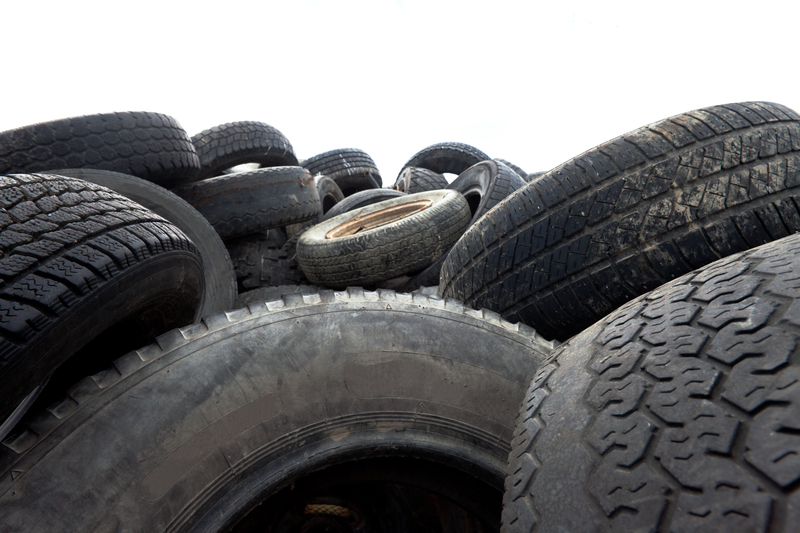Avoid Common Mistakes in Skip Hire: The Ultimate Guide for a Hassle-free Experience
Skip hire services offer an efficient, cost-effective way to manage waste for everything from household cleanouts to large construction projects. However, many individuals and businesses unknowingly make mistakes that can result in higher costs, legal complications, or inefficient service. In this detailed guide, we'll explore how to avoid common mistakes in skip hire and make your next waste disposal project smooth and successful.
Why Is It Important to Avoid Skip Hire Mistakes?
Choosing to avoid errors when hiring a skip can save you time, money, and stress. Incorrect sizing, overfilling, and misunderstanding legal requirements are just some of the pitfalls that can complicate waste disposal. Understanding the best practices and potential mistakes ensures a seamless process and complete peace of mind.

Main Mistakes to Avoid in Skip Hire
Let's break down the most frequent skip hire mistakes and how you can sidestep them effortlessly.
1. Choosing the Wrong Skip Size
- Why it's a mistake: Selecting too small a skip means you'll either need to hire an additional one or arrange extra collections. Too large, and you'll waste money on unused space.
- How to avoid: Estimate your waste carefully. Consult with professional skip hire companies--most offer a guide on skip sizes and recommended uses (e.g., 4-yard mini skips for domestic clear-outs, 12-yard skips for bulky commercial waste).
- Tip: If you're unsure, it's often safer to go slightly larger than to order too small a skip.
2. Overfilling the Skip
- The risk: Skips filled above the rim cannot legally be transported, leading to additional charges or the need to remove excess waste.
- Prevention: Never fill above the skip's sides. Distribute waste evenly and break down bulky items when possible.
3. Disposing of Prohibited Items
- The issue: Not everything can go into a skip. Items like asbestos, electrical items, tires, paint, chemicals, or fridges are generally prohibited and require specialist disposal.
- What can you do? Check for lists of forbidden items with your chosen provider. Certain skips may accommodate specific waste types, so ask if you're unsure.
4. Poor Placement of the Skip
- The consequences: Placing a skip in the wrong location can lead to access problems, safety hazards, or fines if it blocks public roads without a permit.
- Solution: Choose a flat, stable, private site if possible. If you must place it on a public road, ensure you have a proper permit from your local council and observe safety signage and lighting requirements.
5. Neglecting Skip Hire Permits
- Why permits matter: Most councils require a permit if your skip sits on a public road, footpath, or verge.
- How to stay compliant: Most reputable skip businesses can arrange permits. Always clarify responsibility for permitting before hire. Fines for unpermitted skips can be significant.
6. Ignoring Weight Limits
- The problem: Skips are subject to maximum weight limits. Heavy materials like soil, concrete, or rubble can quickly exceed limits, making collection hazardous or even illegal.
- To avoid issues: Discuss the primary waste type with your supplier. Consider a skip specifically designed for heavy loads or multiple smaller skips for dense materials.
7. Booking at the Last Minute
- The mistake: High demand or lack of availability can derail your project's schedule.
- Proactive approach: Book early, especially during peak periods such as spring and summer. Advance booking ensures the right skip size and permits are available for your timeframe.
8. Underestimating the Importance of Recycling
- Environmental impact: Failing to separate recyclables means more waste ends up in landfills.
- How to help: Use skips that offer segregated waste solutions and always check your provider's recycling policies. Choosing a responsible skip hire company can greatly reduce landfill reliance.
9. Not Comparing Prices
- Oversight: Different skip hire providers may quote significantly different prices for the same service.
- What to do: Obtain at least three quotes and compare not just price, but included services (drop-off, collection, permit handling, length of hire, customer support).
10. Inadequate Communication with the Provider
- The issue: Failure to specify details about your site, access times, or waste type can result in delays or additional charges.
- Best practice: Maintain clear and prompt communication about your schedule, waste type, site requirements, and any changes.
Quick Checklist: How to Avoid Mistakes in Skip Hire
- Evaluate your waste volume and select the correct skip size.
- Never overfill your skip--keep everything level with the rim.
- Check for restricted/prohibited items before tossing waste.
- Place skips wisely and obtain all necessary permits.
- Discuss weight limits with your provider, especially for dense materials.
- Book your skip in advance.
- Request and compare quotes from several providers.
- Prioritise recycling and environmentally-friendly waste disposal.
- Communicate your requirements clearly to avoid misunderstandings.
Frequently Asked Questions About Skip Hire Mistakes
What should I never put in a skip?
Commonly prohibited skip contents include:
- Asbestos
- Batteries and electrical appliances
- Gas cylinders
- Paint, oils, and solvents
- Tyres and plasterboard (in some areas)
Always request a complete list from your skip hire provider.
How can I estimate the right skip size for my project?
Skip sizes are measured in cubic yards. To avoid common mistakes in skip hire sizing:
- Compare your waste to standard objects (e.g., black bin bags per yard).
- Use calculators offered by reputable skip hire businesses.
- Describe your project fully to your provider for tailored advice.
Who gets the skip permit, me or the hire company?
Usually, the skip hire company arranges permits for a fee. Confirm this service before booking to avoid legal fines.
Will I have to pay extra for overfilled or overweight skips?
Yes, both overfilled and overweight skips often incur extra charges or refusal of collection. Always check your provider's policy.
Essential Tips for Hassle-Free Skip Hire
- Do your homework: Research skip sizes, restricted items, average costs, and necessary permits before contacting providers.
- Go green: Partner with eco-conscious companies that recycle high percentages of collected waste.
- Plan for drop off and collection: Make sure the site is accessible at the agreed-upon times.
- Inform neighbours: If space is tight or the skip impacts shared space, let neighbours know in advance.
- Keep the area tidy: Avoid attracting pests or creating hazards by properly loading and covering your skip overnight.
Choosing the Right Skip Hire Company Matters
Your experience largely depends on your choice of provider. To avoid the most common skip hire mistakes:
- Choose a reputable, licensed business with transparent pricing and clear terms.
- Check for strong customer reviews, especially regarding reliability and communication.
- Ensure they handle permits and provide environmental credentials.
- Ask about liability cover, especially for skips on public property.

What Happens If Mistakes Are Made?
If you do accidentally make a mistake when hiring a skip:
- Overfilling or overweight skips can't be removed and you may have to pay an additional fee for a second collection or unloading.
- Incorrectly placed skips can result in fines or your skip being moved at your expense.
- Banned waste can lead to legal action or expensive hazardous waste removal charges.
Early communication with your provider and quick action can often resolve minor mistakes before they become major headaches.
Conclusion: Successful Skip Hire Starts With Avoiding Mistakes
Hiring a skip should make your waste management easier--not harder. By being aware of common skip hire mistakes and following the practical steps outlined above, you can save money, avoid legal troubles, and ensure your environmental impact is minimized.
Remember: The key to avoiding typical skip hire errors lies in good research, proactive planning, and clear communication. For both domestic and commercial skip hiring, understanding these errors greatly improves efficiency and satisfaction.
If you're planning your next waste disposal project, use this guide as your checklist to guarantee a hassle-free and cost-effective skip hire experience. Make sure to share these insights with friends or colleagues so everyone can avoid common mistakes in skip hire and make the most of their waste removal solutions!